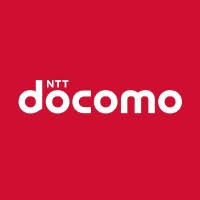Docomo noted it expects to accelerate 6G R&D and contribute to 6G’s global standardization and commercialization
Japanese telco NTT Docomo, working in cooperation with NTT Corporation, Nokia and Korean carrier SK Telecom announced the completion of a test using AI technology for future 6G systems.
In an indoor test with radio waves in the 4.8Ghz band of 6G wireless technology using AI for the first time in Japan, the partners confirmed that communication speeds can be improved up to 18% compared to conventional methods.
Moving towards the era of 6G technology, Docomo and its partners utilized AI technology to optimize transmission and reception processing for various radio wave propagation environments.
“Specifically, the test confirmed that communication performance can be improved by using AI-based baseband transmission and reception processing developed by Nokia to design optimum modulation schemes according to the radio wave propagation environment and applied it to a wireless interface,” NTT Docomo said. “In addition, the reception process using AI does not use a known signal between the transmitter and receiver, which is conventionally needed to estimate the propagation channel, but instead uses AI to realize a series of reception processes from channel estimation to signal detection in one step. The result is higher transmission efficiency and improved communication speeds.”
The carrier continued: “With further upgrades, the technology is expected to optimize modulation and demodulation schemes for diverse propagation environments and thereby improve communication quality across a broad range of wireless transmission usage cases.”
Going forward, Docomo said it will continue further tests initiatives with major domestic and international vendors as well as international operators. Docomo also noted it expects to accelerate 6G R&D and contribute to 6G’s global standardization and commercialization.
NTT Docomo has recently launched a new project, dubbed ‘6G Harmonized Intelligence,’ aimed at advancing the future of 6G communications technology.
In a release, the operator noted that this initiative marks the first step in realizing its vision of 6G as a ‘network for AI.’
Unlike conventional communication technologies like 4G and 5G, which are primarily used by people via smartphones, 6G will aim to create a ‘network for AI.’ This new network is expected to enable AI and robots to operate at their full potential by processing large amounts of data in real-time and providing instant feedback, the Japanese telco said.
NTT Docomo identifies five key values for 6G: Sustainability, Efficiency, Customer Experience, Network for AI and Connectivity Everywhere. Through its 6G Harmonized Intelligence Project (6GHI PJ), the telco plans to explore new concepts, use cases and services in collaboration with AI and robotics experts. The project will also focus on developing innovations in devices, networks and UI/UX, shaping how next-generation communication technologies can benefit society.
The 6G project will bring together three specialists, including the head of the R&D Center for Digital Nature at the University of Tsukuba, to develop a concrete and achievable vision for 6G. NTT Docomo anticipates that this collaboration will lead to innovative solutions that maximize the potential of 6G.
NTT Docomo is currently focusing on demonstration tests and standardization efforts for 5G evolution and 6G technology with the aim of achieving a combination of advances in connectivity, including ultra-high speed, large capacity and low latency, the telco recently told RCR Wireless News.

